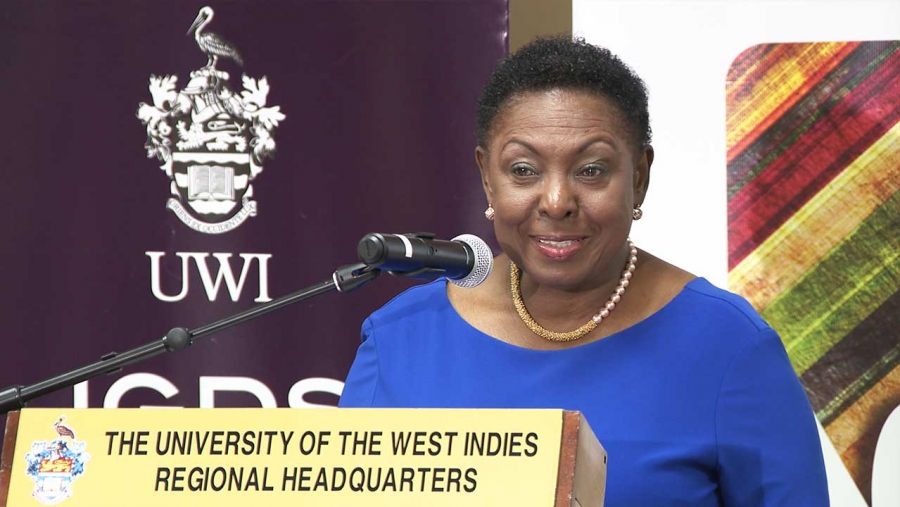Kingston 12 April 2019 – The Minister of Culture, Gender, Entertainment and Sport, the Honourable Olivia Grange, says a certain pervasive “idea of masculine identity” is at the root of the high levels of violence, including gender-based violence, in the country.
According to the Minister, “This idea of masculinity that we teach and enforce causes men to see themselves as strong and women as weak. It makes them feel that they are superior to women and that they can own, control and abuse women.”
Minister Grange says the problem begins early in the lives of our children and has to do with how we choose to raise our boys.
“We tell them that they must be masculine; and that masculinity is the opposite of femininity. So they grow up to reject feminine traits in favour of masculine ones. They must be tough. And we spend a lot of time training them to be tough. We punish them in certain ways to toughen them up. We drop lick pon dem — much more than we do girls.”
The Gender Minister says the effect of attempts to toughen up our boys is the “hardening of our society; not only men, but women who must assert themselves in the face of male aggression.”
She says a lasting and practical solution is to change the way we raise our children, especially boys, who are currently subject to violent beatings as part of their upbringing. “There is a saying, ‘don’t spare the rod and spoil the child,’ but, ladies and gentlemen, I believe we should in our new socialisation of our children, banish corporal punishment from our culture,” declared Minister Grange.
The Minister was addressing the Policy Meeting on Masculinity in the Caribbean at the University of the West Indies Regional Headquarters at Mona. She welcomed the idea of the policy meeting but cautioned the participant that it cannot be a talk shop.
Minister Grange said: “I know there is no quick fix. There is no silver bullet. There is no magic wand. But we are in a crisis; and our people are impatient for action. We can study all we want. We can research all we want. We can have policy documents all we want. But if we don’t ensure that we move it from there to the next stage we would be just spinning our wheels, speaking to ourselves and not being able to get to where we really can solve the problem.”
The meeting was organised with the support of the Inter-American Development Bank.
 Government of Jamaica
Government of Jamaica
